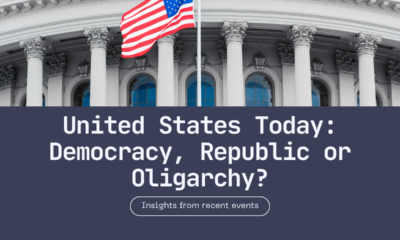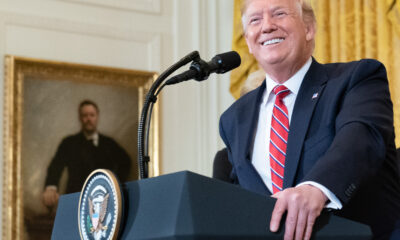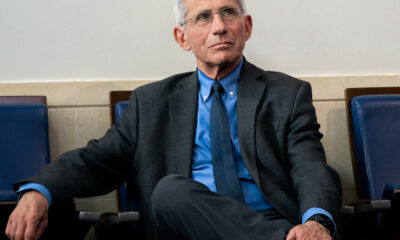Civilization
Leave the Pews
A politically conservative Jew tells her fellow Jews to leave the pews – of synagogues that pledged fealty to the left, which hates Jews.
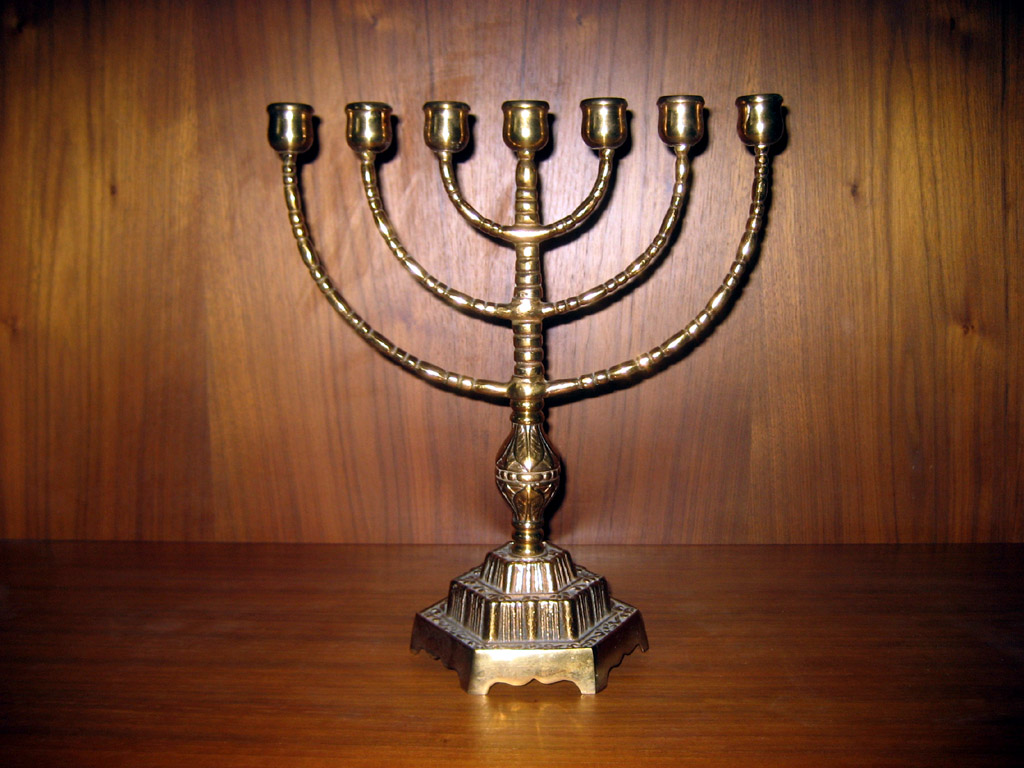
It seemed like a good idea.
College campuses across the country were erupting in Jew-hating outbursts, and parents were rightly worried about their Jewish college-aged kids caught up in the frenzy of hate. On Facebook, a group called Mothers Against College Antisemitism (M.A.C.A.) was founded and grew quickly to over 50,000 members. They shared information, emailed, called, and signed petitions. They stood united against the oldest hatred rearing its head again.
But just as fast, fissures formed. The cudgel of DEI – that is, “diversity, equity, and inclusion” policies that had been used against Jewish students – was the subject of feverish debate. Sure, the policies were bad for Jews, but weren’t we all good liberals after all? Shouldn’t that take precedence here? People earnestly wondered whether other minority groups would be mad at them if they fought to end DEI instead of simply fighting to get Jews included in the special identity groups recognized by the absurd system.
It wasn’t just DEI, either. When Florida Gov. Ron DeSantis announced a plan to fast-track Jewish students who were feeling unsafe in their own universities who wanted to transfer to Florida colleges where he pledged they would be protected, commenters in the group warned not to accept his kindness as he was on the wrong political side.
What became clear within that Facebook group and in so many other quarters since Oct. 7 is that much of secular Judaism, in both the Reform and Conservative branches, had become overtly political and not really religiously based at all. For many Jews, their religious identity had become so intertwined with leftist politics that they couldn’t force a separation even when they themselves were being targeted with their own bad ideas.
They pledged allyship to other groups in their tent, not to Judaism or Israel. This was evident in 2019 when daily attacks began on Orthodox Jews in Brooklyn. Activist synagogues in places like Park Slope, which would have been at the forefront of marches had any other group come under attack, spent years staying silent about it. The attackers, often caught on video, were frequently other minorities, not MAGA hat-wearing white people as they would have hoped, so it was awkward to raise a fuss. Progressive politics was the code they followed, and Judaism was an identity umbrella like all the others in their movement. “As a Jew…” they would begin their lectures. As a Jew, they were rarely interested in Judaism.
The Oct. 7 attacks in Israel woke many in the diaspora from their comfortable slumber. Jews in America and elsewhere, traumatized already from images of Jewish children stolen from their homes and Jewish teenagers mowed down while dancing at a music festival, also had to contend with a huge outpouring of hate in their own countries.
For many liberal Jews, it was hard to ignore that it wasn’t the boogeyman white supremacists that they had been warned about their entire lives. No, it was their professors, their co-workers at the nonprofit, friends of their college-aged kids calling for an end to Israel and celebrating the murder of Jews. And these hateful marches were not happening in rural Alabama, in the places they were taught to fear, but mainly in the bluest of blue cities.
The political bedfellows they had slept beside were sharply opposed to Israel doing anything but simply accepting the attacks of Oct. 7.
By Oct. 8, their “allies” had already taken to the streets, some in grotesque glee over the slaughter of Jews in their homes, others tearing down posters of kidnapped children, to say Israel should just sit down and take it.
It made sense within the philosophy they had subscribed to. In the leftism of our current moment, there is only space for “colonizers” and “the colonized,” “oppressor” and the “oppressed,” and, well, too bad for the massacred Jews, the children murdered in front of their parents and the parents killed in front of their kin. The Israelis were cast in the role of the oppressor colonizers, whether or not it makes historical sense.
This sophomoric way of thinking had been percolating for so long that it was a difficult mindset to break, as evidenced by the mom group unable to accept that a Republican like Gov. Ron DeSantis could be “on their side.” Republican Jews had no such qualms. When Pennsylvania Sen. John Fetterman, a progressive Democrat, turned out to be a sane and forceful voice for Israel, conservative Jews celebrated him. It’s specifically because their religion and politics had not been fused in the same way as their liberal counterparts, and they could see clearly who had their back.
It was also difficult for liberal Jews to find their grounding in the days after the attacks. Some took to their social media to explain details of the existence of Israel that they assumed their celebrating friends didn’t know. But they did know. They just didn’t care. When rape denial was rampant, the liberal Jews sighed in relief when the New York Times finally did a deep dive into the allegations of what happened to women on Oct. 7. Now their fellow leftists will have to believe. But it didn’t happen. Dismissing Jewish pain came easily to them, leaving liberal Jews aghast. Not so aghast that they didn’t continue to post to their social media pleas to their allies to show them humanity. “I still believe in affordable housing,” went one plea. I’m just like you, I promise. Last May, peace activist Judi Weinstein Haggai wrote, “May we all be granted the right to our basic rights of home, food, shelter, and peaceful days.” She was one of the Kibbutzniks slaughtered on Oct. 7.
What these politicized Jews and Jewish institutions should have learned then is that an ally is not necessarily a friend. An ally makes a calculated decision of alignment based on mutual objectives. “Allyship,” a word the left has fetishized, is temporary by design. Political allyship is the most transient. This is why you don’t subsume your entire religion to your politics. This is why you don’t ignore thousands of years of religious thought to conform to the trendy political philosophy of the modern moment. And that is why you don’t pervert your congregation to focus on politics instead of scripture. Yet Conservative and Reform rabbis continue to do just that.
In the last decade, the Conservative Jewish tradition has neared collapse, with Reform Judaism on a similar downward trajectory. According to a Pew poll from last year, some 33% of American Jews identify as Reform, the highest number of any Jewish denomination. As there are about 7.5 million Jews in America, the Reform movement should be rock steady. But a “Re-CHARGING Reform Judaism” conference held in June in New York noted, “there are only 550,000 synagogue-affiliated Reform Jews in the United States.” It’s likely many secular Jews who say they are Reform just mean they’re unaffiliated or specifically not Orthodox.
The Times of Israel reported in 2022 that “In the past 20 years, more than one-third of Conservative synagogues and one out of five Reform synagogues closed.” The Hebrew Union College in Cincinnati, the country’s oldest Reform seminary, is ending its rabbinic degree program due to a decline in enrollment.
Many reasons are offered to explain this phenomenon. Often overlooked is how blatantly political these entities had become. It’s not a coincidence that Chabad, which has become the largest Jewish educational, religious, and social service organization and eschews politics, has grown by nearly 200% in the last two decades. The temple should not be a political organization, but too often, the rabbis move it in that direction anyway.
For a long time, Jews attending Reform or Conservative shuls accepted this trend as part of a package deal when attending services. After the religious part, the rabbi delivers a sermon. It might be on climate change or gun control. Income inequality or abortion rights. They may invent a problem like one South Florida Reform synagogue did when they displayed “banned” books, a shot at the governor of their state, none of which had actually been banned, as evidenced by their presence in the display.
Or they may warp the faith to their leftist concepts, as when a Reform rabbi told my daughter to put an orange on the Seder plate for feminism. It’s akin to getting a lecture from a college freshman, full of poorly thought-out theories but very eager to share their ideas with the world. If you’re uncomfortable with the 7th-grade level presentation on the coming climate catastrophe and how, like a Conservative rabbi from South Florida told his congregation, you should be driving an electric car, perhaps you don’t belong. Don’t ask where his car battery comes from or what happens to it when he’s done with it. The details aren’t important; believing is the most important part. The monologues are less to change minds, since the rabbi assumes we should all be in agreement on these issues in the first place, and more to signal in-group status.
Small-c conservative Jews had heard it loud and clear that they no longer belong. What’s different today is that so many liberal Jews have realized their mistake. Many had their eyes opened on Oct. 7 when they expected their political allies to mourn with them, to fight the hate alongside them. Instead, they’ve realized that the rhetoric they had trumpeted in the past was now used against them. Worse, the tactics, the angry protests, the rage, had been turned on them.
The rabbis are now caught between the politics they’ve used to replace the religion and the religion itself. After Oct. 7, Jews hungered for connection to each other. The more normal leftist rabbis, that is, not the ones wearing tallit like a Forever 21 shawl while they skip the parts about Israel when reading from the Torah and call for a ceasefire with people who have said they will never stop trying to kill Jews, tried to deliver but their original commitment is still to their political tribe. These rabbis, in your neighborhood synagogue, couldn’t call for a ceasefire, because even the liberal Jews who make up their congregations would be appalled, so they slyly took to calling it “Netanyahu’s war.” That way, strategic missteps by the IDF weren’t the result of a government taking every care to minimize civilian casualties but of a bad man at the top directing an ill-conceived military operation. These rabbis need an enemy, as all political movements do.
To those who sat in the pews for years as their congregation became a shameless political operation, the time has now come to depart. Your synagogue must be a place of worship, not of political activity, and, unfortunately for you, who paid your dues and hoped to align with a community of your peers, the political movement your shul promotes is the one that hates you. You should have departed years ago, like when your rabbi couldn’t condemn constant rockets into Israel for years without also condemning the Israeli response. Or when your rabbi could stand up for every group other than our own.
But now is as good a time as any. Oct. 7 was a pivotal moment that will test Jewish survival. What we did in the aftermath of the horrendous attack will define us as a people for at least a generation. Did we stand together with pride? Or did we allow our spiritual leaders to prioritize some other alliance for their own benefit?
We are called to survive but also to understand what we are preserving and why. If your rabbi cannot do that, it’s time for a new rabbi. You cannot support institutions that mix our venerable faith tradition with a transitory and superficial political agenda. In the walls of our temples, we are just Jews. It’s long past the time to tell the rabbis: Be whatever else you want to be on your own time.
This article was originally published by RealClearPolitics and made available via RealClearWire.
Karol Markowicz is a weekly columnist at the New York Post, a contributor at Spectator USA, and a contributing writer at the Washington Examiner.
-

 Executive4 days ago
Executive4 days agoSecret Service chief gets no solace
-
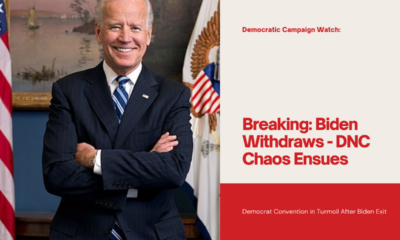
 Civilization5 days ago
Civilization5 days agoBiden drops out of race
-

 Executive2 days ago
Executive2 days agoWaste of the Day: Louisville Taxpayers Pay Nearly $600,000 For Empty Building’s Maintenance, Security
-

 Guest Columns4 days ago
Guest Columns4 days agoFear Itself: Democrats’ Favorite Strategy Caused Their Current Chaos
-

 Executive3 days ago
Executive3 days agoWhere is Joe Biden – or Jill?
-

 Executive1 day ago
Executive1 day agoWaste of the Day: Throwback Thursday: Cities Used Crime Prevention Funds on Soccer Games, Paper Shredding
-

 Civilization4 days ago
Civilization4 days agoBuild Iron Dome in the United States To Prepare for Israel’s Worst Day
-

 Executive2 days ago
Executive2 days agoFacile and politically motivated suggestions



